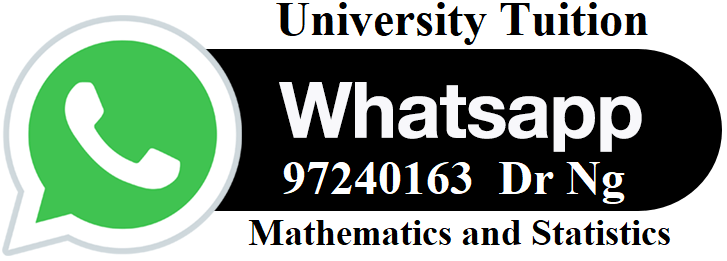From the Editor’s Desk
13th December 2023
Students taking Mathematics for O Levels, A Levels, or for International Baccalaureate should employ a calculator when solving certain questions. There are many opportunities to make careless mistakes even with the use of the calculator, and this article aims to shed light on how students can avoid making common calculator mistakes.
1. Setting of degrees and radians for trigonometry
Firstly, the most common mistake for calculators used in trigonometry questions is the incorrect setting to degrees or radians. Students should always check the required setting before attempting the question as the incorrect setting could result in vastly different answers.
2. Bracket positioning and squaring
Depending on the model of calculator used, students may have difficulties in positioning the bracket to square numbers. Students should be careful of adding/subtracting/multiplying/dividing within the bracket and putting the square outside the bracket. If students are unsure whether they have gotten the correct answer the first time, they should repeat the calculation to see whether the answers are the same both times.
3. Error carried forward
Students may accidentally press the = sign button twice, which will change the answer on the calculator. Then, the wrong figures will be used in the next step of the calculation, which could make the final answer wrong as the mistake will be carried forward. Students should be careful when conducting the calculation and do the calculation again if they are unsure.
4. Not checking the figures to see whether they make sense
Lastly, some questions with a context (such as questions involving tangible objects) will have answers which are appropriate to the context. For example, students who have performed the calculations wrongly could have a ridiculously big or small number which does not fit the context. An example would be a question asking the student to calculate the number of people and if the student gets a decimal answer, he will automatically know it is wrong as it is impossible to split people into fractions. Students should be aware of the context so they will know if they have provided the wrong answer to the question.



 The Singapore government and various Members of Parliament have voiced concerns about private tuition. Many have highlighted the stresses and pressures students are facing at school and have wondered if we are pushing our students too hard.
The Singapore government and various Members of Parliament have voiced concerns about private tuition. Many have highlighted the stresses and pressures students are facing at school and have wondered if we are pushing our students too hard.